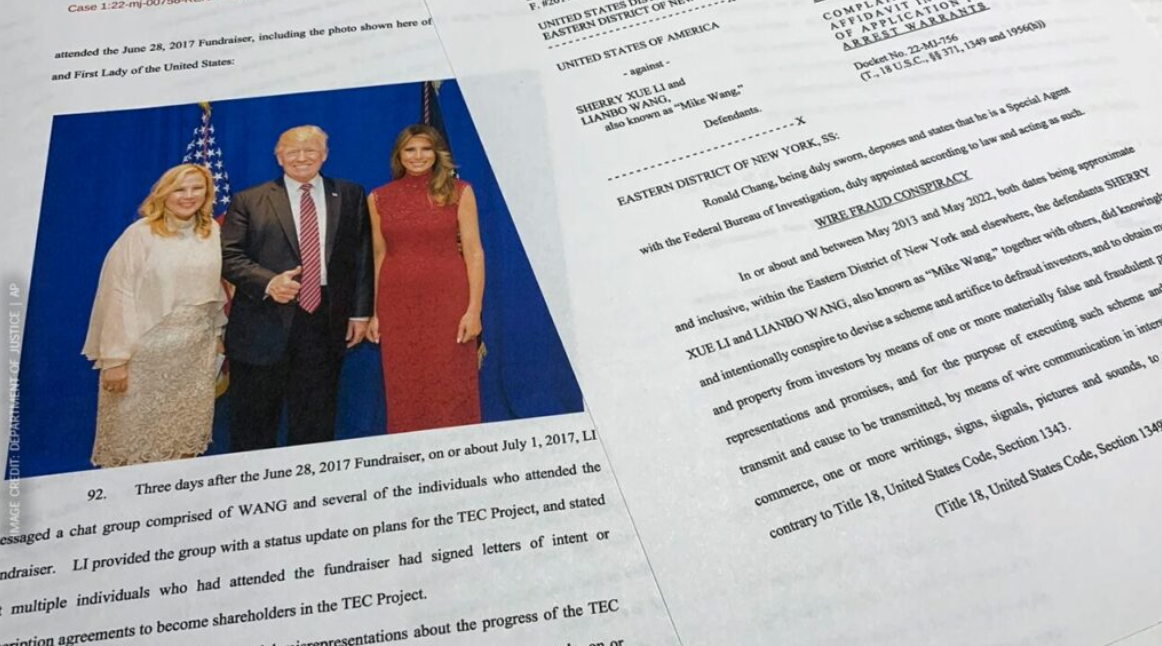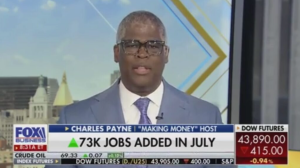Sherry Xue Li pleaded guilty to masterminding a massive $30 million immigration and campaign finance scam that targeted foreign investors with false promises of green cards and political access. Prosecutors reveal how Li exploited connections with U.S. politicians and manipulated federal visa programs to dupe over 150 victims.
The Scam at a Glance
For over a decade, Sherry Xue Li and her co-conspirator, Lianbo “Mike” Wang, orchestrated a sophisticated fraud scheme. They convinced foreign investors—mostly from China—to pour millions into a supposed real estate and education project in New York called the Thompson Education Center. Investors were promised permanent U.S. residency through the EB-5 visa program, contingent on a $500,000 investment.
But prosecutors say the project was a sham. Instead of building a legitimate campus, Li and Wang used campaign contributions and photos with high-profile American politicians—such as former President Donald Trump—to give their scam an air of credibility.
Political Access as a Selling Point
Li’s scheme didn’t just promise green cards—it also sold political influence. She attended high-dollar fundraising events, like Trump’s 2017 re-election fundraiser, and funneled large sums from foreign nationals into the campaign. Photographs of Li with President Trump and First Lady Melania Trump were circulated to imply government endorsement of the project, a misleading tactic that violated federal election laws prohibiting foreign campaign contributions.
Though Trump’s campaign wasn’t accused of wrongdoing, this case highlights weaknesses in campaign finance enforcement and how foreign actors can exploit political access for financial gain.
Lavish Spending and False Promises
Rather than using the funds for the purported development, Li diverted millions for personal luxury. Investigators found evidence of extravagant spending at casinos, high-end restaurants, and luxury stores. To keep investors convinced, Li and Wang commissioned fake architectural plans and even sent misleading photos of unrelated construction sites.
The scam extracted over $31.5 million from victims, with many EB-5 investors losing their chance at permanent residency. Wang pleaded guilty in 2024 and received a five-year sentence. Li faces up to 20 years in prison, has agreed to forfeit millions, and surrender several properties.
Broader Implications and Warnings
This case raises serious concerns about investor visa program abuses and the vulnerabilities in campaign finance laws. While the EB-5 program remains a legitimate path for many, critics warn it can be exploited by fraudsters promising political influence and residency, undermining public trust.
U.S. Attorney Rebecca Nocella emphasized the commitment to prosecuting those who prey on vulnerable investors and distort the democratic process.
Why It Matters
This story is a stark reminder that political connections and visa programs can be weaponized in scams, jeopardizing both the integrity of American elections and immigration systems. The fallout from this case is likely to fuel calls for tighter oversight and reform to prevent similar frauds in the future.

Emily Johnson is a critically acclaimed essayist and novelist known for her thought-provoking works centered on feminism, women’s rights, and modern relationships. Born and raised in Portland, Oregon, Emily grew up with a deep love of books, often spending her afternoons at her local library. She went on to study literature and gender studies at UCLA, where she became deeply involved in activism and began publishing essays in campus journals. Her debut essay collection, Voices Unbound, struck a chord with readers nationwide for its fearless exploration of gender dynamics, identity, and the challenges faced by women in contemporary society. Emily later transitioned into fiction, writing novels that balance compelling storytelling with social commentary. Her protagonists are often strong, multidimensional women navigating love, ambition, and the struggles of everyday life, making her a favorite among readers who crave authentic, relatable narratives. Critics praise her ability to merge personal intimacy with universal themes. Off the page, Emily is an advocate for women in publishing, leading workshops that encourage young female writers to embrace their voices. She lives in Seattle with her partner and two rescue cats, where she continues to write, teach, and inspire a new generation of storytellers.









